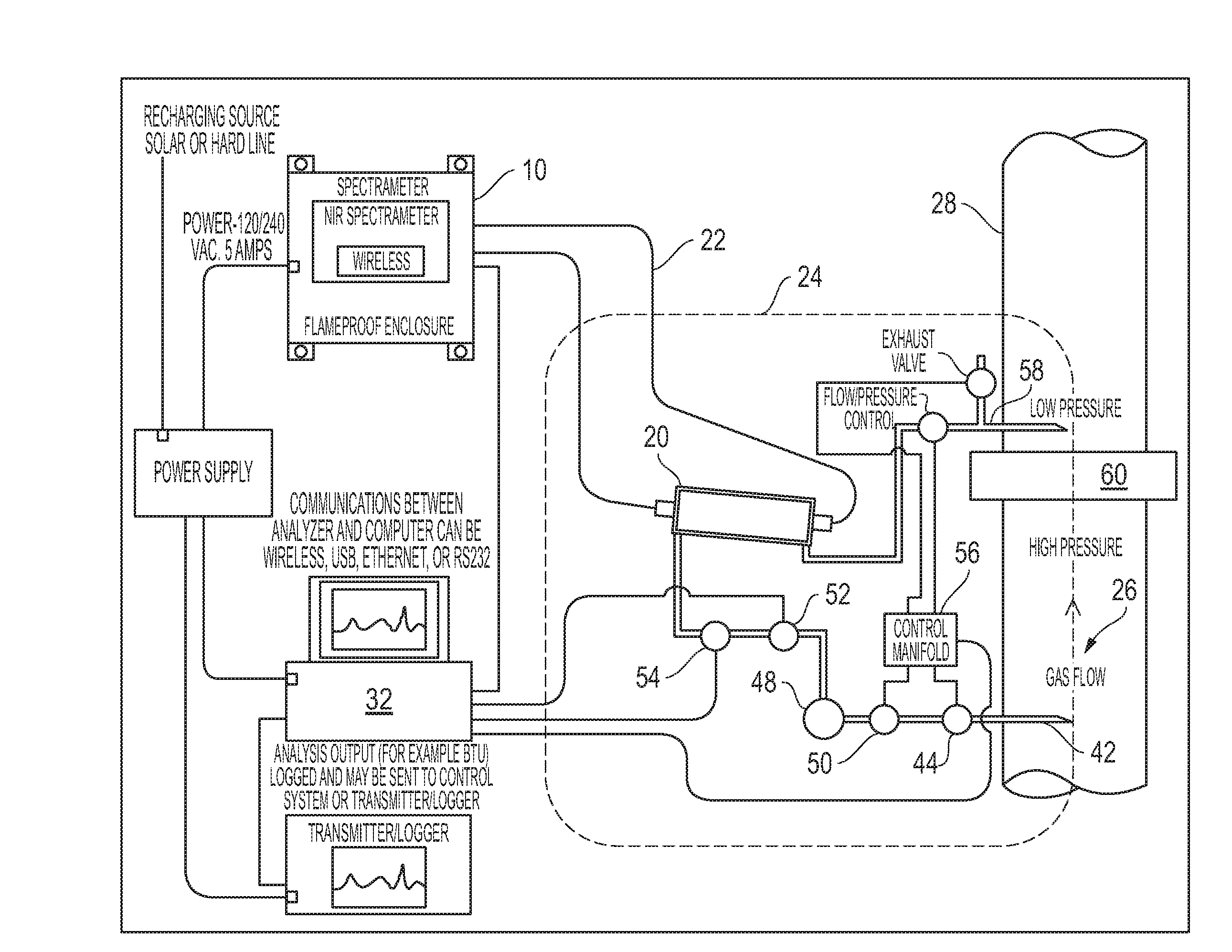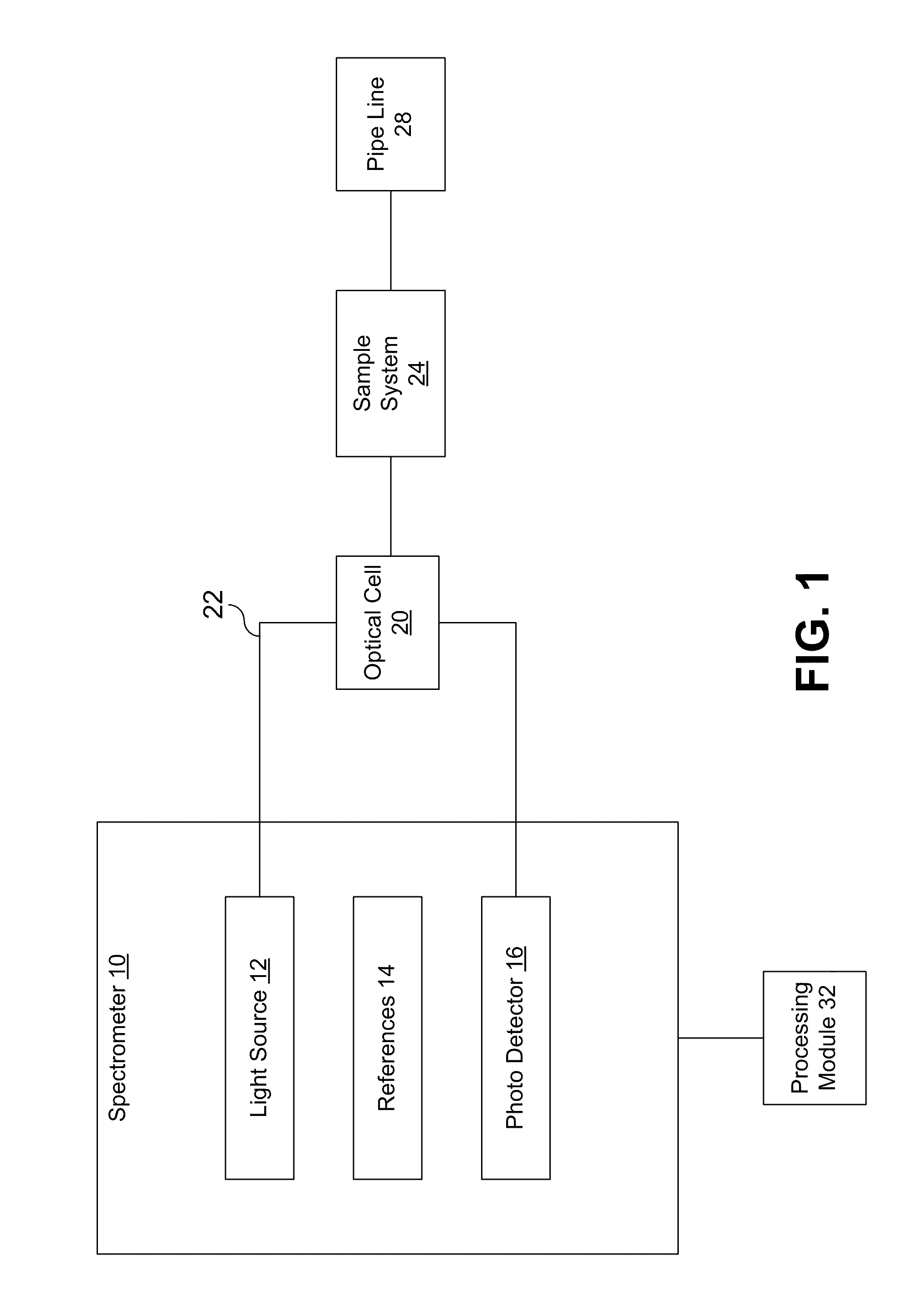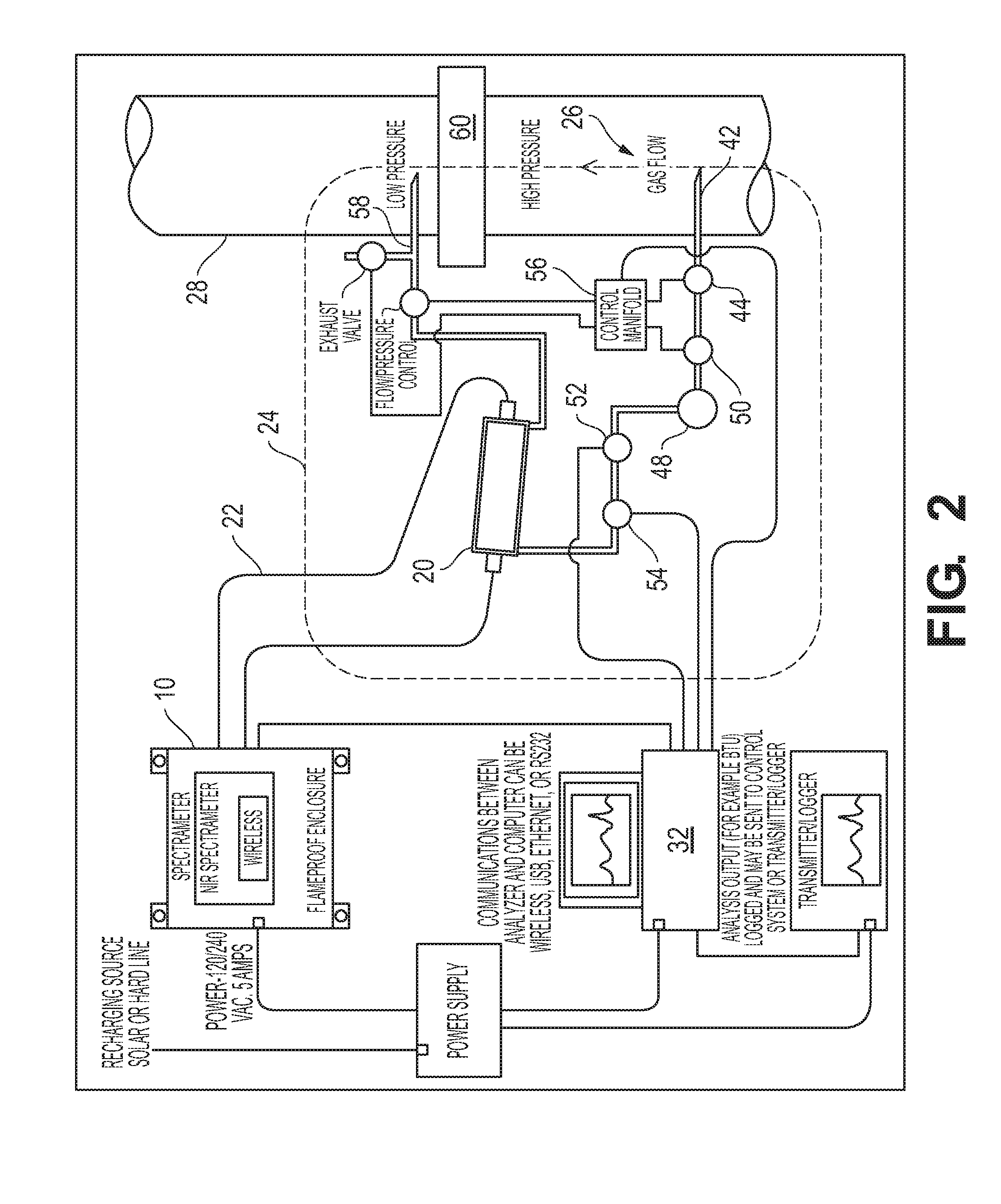Optical determination and reporting of gas properties
- Summary
- Abstract
- Description
- Claims
- Application Information
AI Technical Summary
Benefits of technology
Problems solved by technology
Method used
Image
Examples
Embodiment Construction
[0030]Preferred embodiments of the present invention are illustrated in the FIGUREs, like numerals being used to refer to like and corresponding parts of the various drawings.
[0031]Embodiments of the present invention provide a way of optically determining the chemical composition of natural gas to derive the energy content (expressed in British Thermal Units (BTU)), hydrocarbon dew point, compressibility, specific gravity, moisture content, impurities, Wobbe index and other like properties associated with hydrocarbons such as but not limited to natural gas. Embodiments may employ the Near Infrared band of the electromagnetic spectrum, specifically between the 1300 nm to 2500 nm range. One embodiment focuses on the 1550 nm to 1800 nm range for the carbon hydrogen overtone to resolve the chemicals that contribute energy content to natural gas. Other embodiments may utilize 1350 nm to 1800 nm range to identify CO2, H2S and other chemical components within the spectrum.
[0032]Another em...
PUM
 Login to View More
Login to View More Abstract
Description
Claims
Application Information
 Login to View More
Login to View More - R&D
- Intellectual Property
- Life Sciences
- Materials
- Tech Scout
- Unparalleled Data Quality
- Higher Quality Content
- 60% Fewer Hallucinations
Browse by: Latest US Patents, China's latest patents, Technical Efficacy Thesaurus, Application Domain, Technology Topic, Popular Technical Reports.
© 2025 PatSnap. All rights reserved.Legal|Privacy policy|Modern Slavery Act Transparency Statement|Sitemap|About US| Contact US: help@patsnap.com



